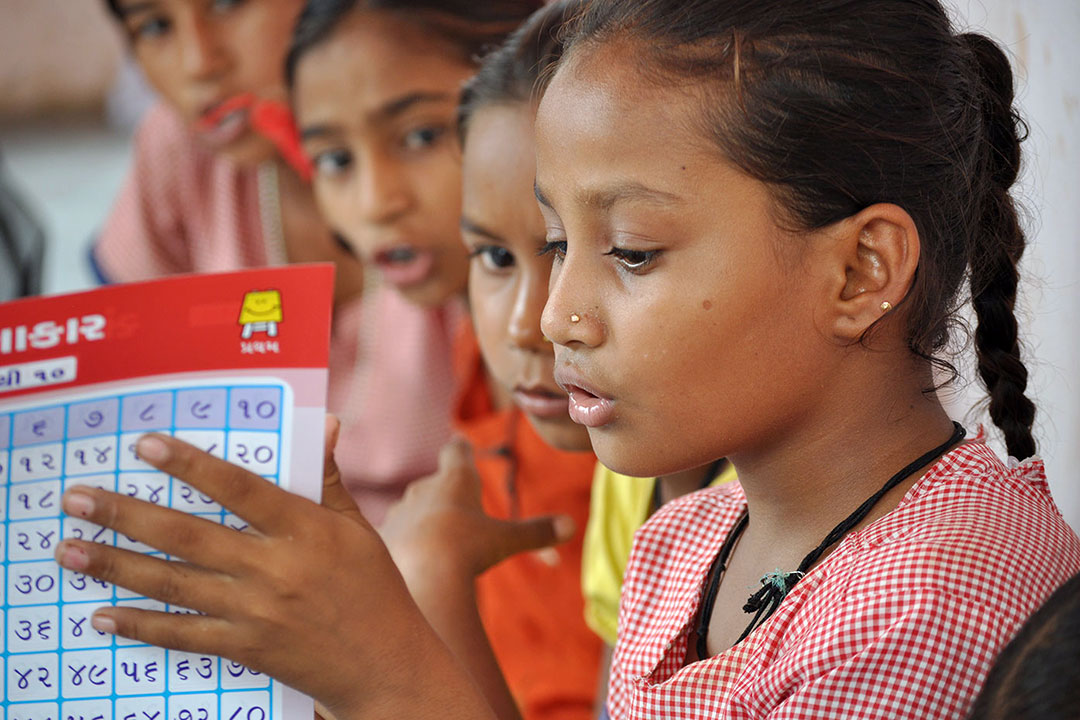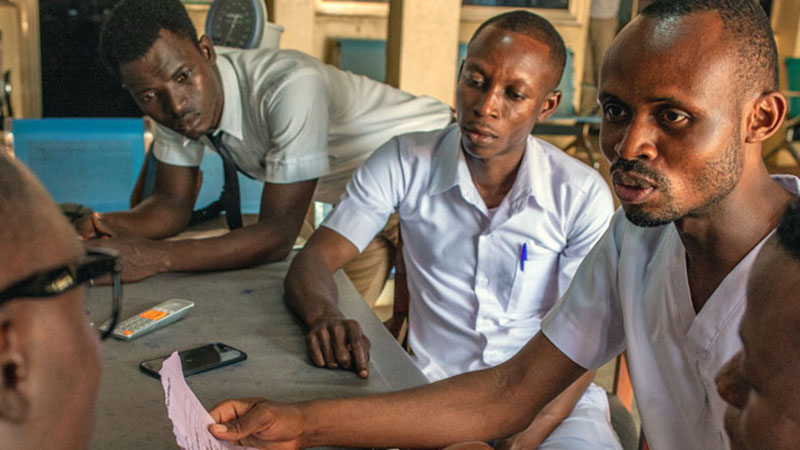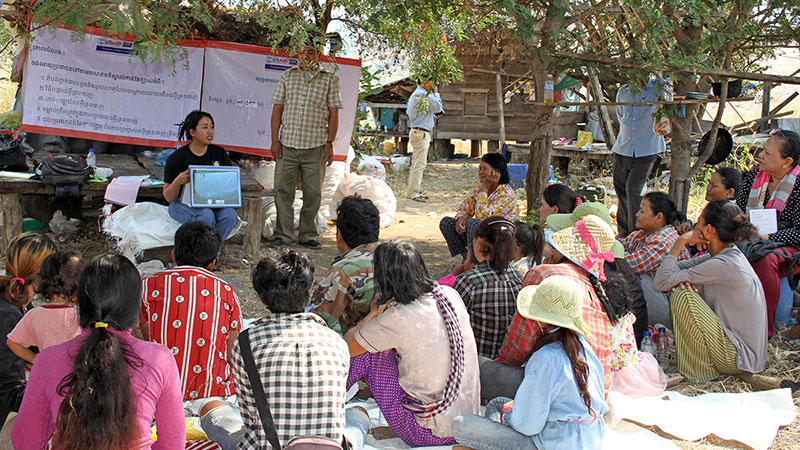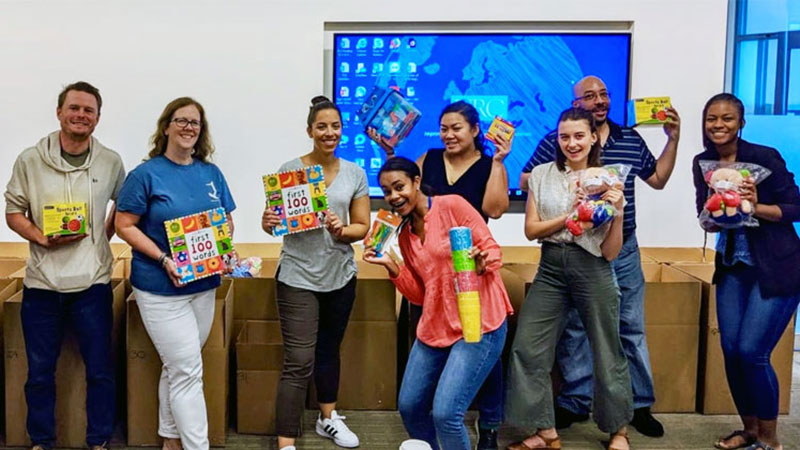As the Reading within Reach (REACH) initiative winds down, it celebrates its accomplishments in improving the effectiveness and sustainability of early grade reading interventions worldwide, providing children a foundational base to achieve a more economically stable future. The five-year initiative, funded by the U.S. Agency for International Development (USAID) and administered by University Research Co., LLC (URC), fostered the establishment of the community of practice known as the Global Reading Network, which numbers more than 4,500 members around the world. Members have participated in technical resource development, policy consultations, webinars, short-courses, and workshops. They have networked at events and launched essential research and programs.
Among its key accomplishments, REACH provided technical support for the Enabling Writers Workshop Program. Through Enabling Writers, teams in Indonesia, Nigeria, Nepal, Bangladesh, Haiti, and the Philippines created 3,000 early grade reading books in local languages. Teams used the award-winning Bloom software from SIL LEAD, which was developed through an All Children Reading: A Grand Challenge for Development (ACR GCD) competition to produce book authoring software that could be used globally to develop books for use in early grade reading programs. The competition was supported by the ACR GCD partners—USAID, World Vision and the Australian Government. The Enabling Writers books are available through the Global Digital Library and the Bloom Library.
On October 24, approximately 100 people from across the Global Reading Network and beyond will gather at the National Press Club in Washington to celebrate the work of the REACH initiative. The day will feature discussions about key topics pertaining to early grade learning, as well as conversations about successes, lessons learned, and needs for the future.
The event on October 24 also features new and forthcoming resources released through Reading within Reach, including the following:
- Universal Design for Learning: Incorporating Information and Communication Technologies into Education for All Learners, Including Learners with Disabilities: Provides information on using ICT4E to advance equitable access to high-quality learning for children with disabilities.
- Literacy Landscape Assessment Toolkit: Offers a step-by-step approach to enablers and barriers to improved literacy outcomes at the systems, learning environment and home/community level; the Toolkit contains fillable data collection and analysis templates, sample interview protocols and suggested stakeholder meeting agendas.
- Language Guidance Toolkit for Early Grade Reading Improvement: Provides information, case studies, guidance and resources to help address language issues.
- Classroom Observation Toolkit for Early Grade Reading Improvement: Shares best practices on designing and using classroom observation instruments.
- Open Licensing of Primary Grade Reading Materials: Considerations and Recommendations: Provides information on copyright and open licensing relevant to governments, donors, implementing partners, publishers and others.
- Managing the Early Grade Reading Book Procurement Project Cycle: Guides project managers through successful book procurement, with a focus on early grade reading books.
- Best Practices in Maximizing Use of EGR Content Available in Digital Platforms: Explores best practices applied by digital libraries to support development of reading skills among children in developing countries.
Other keystone resources generated through REACH include:
- Landscape Report on Early Grade Literacy: Summarizes empirical evidence on early grade literacy acquisition and instruction in developing countries.
- Early Grade Reading Program Design & Implementation: Best Practices and Resources for Success: Short-course series and resource package supports early grade reading program design and implementation. It now serves as a foundation for training of USAID Education Officers.
- Towards the Design and Implementation of Comprehensive Primary Grade Literacy and Numeracy Programs: Provides practical advice and case studies to support literacy and numeracy programs globally.
- Universal Design for Learning to Help All Children Read: Promoting Literacy for Learners with Disabilities: A toolkit for international stakeholders, available in English, Spanish, French and Arabic.
Find these and many other resources on the Global Reading Network website.



